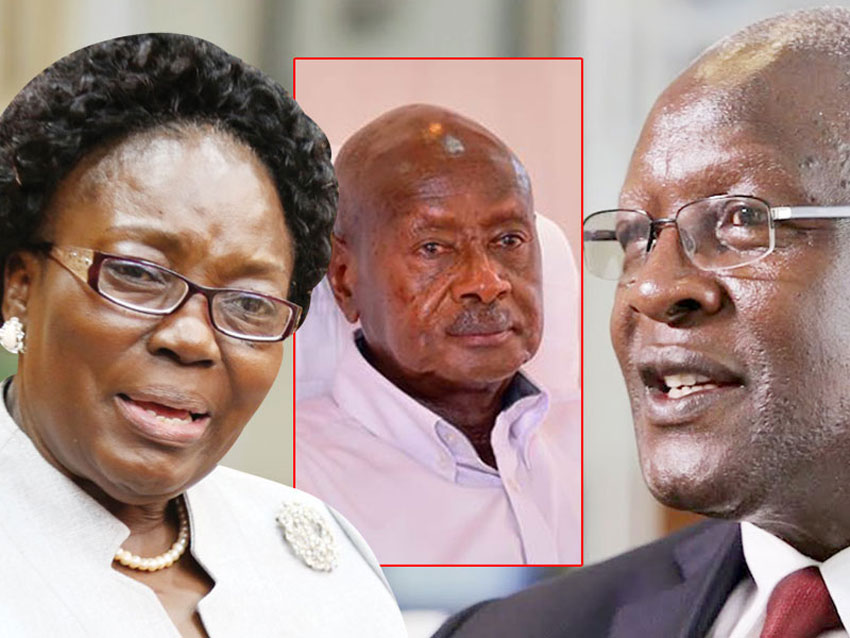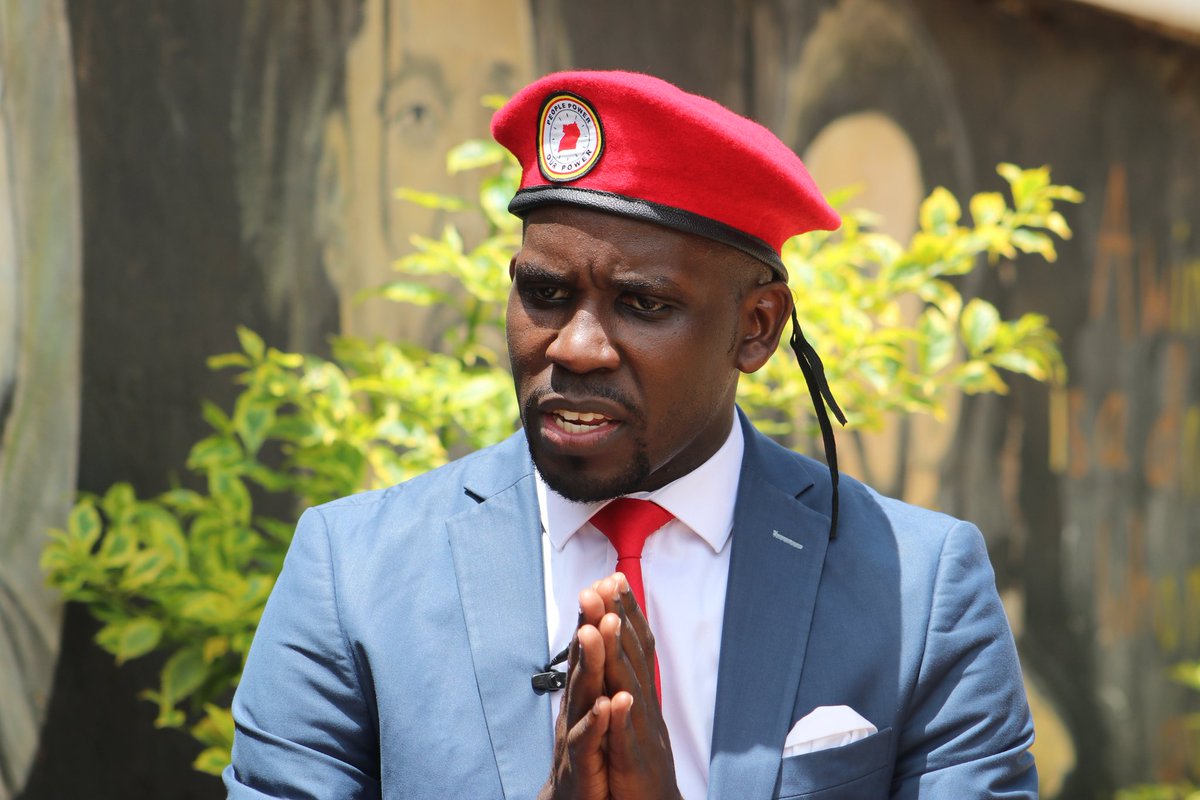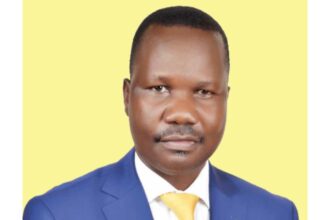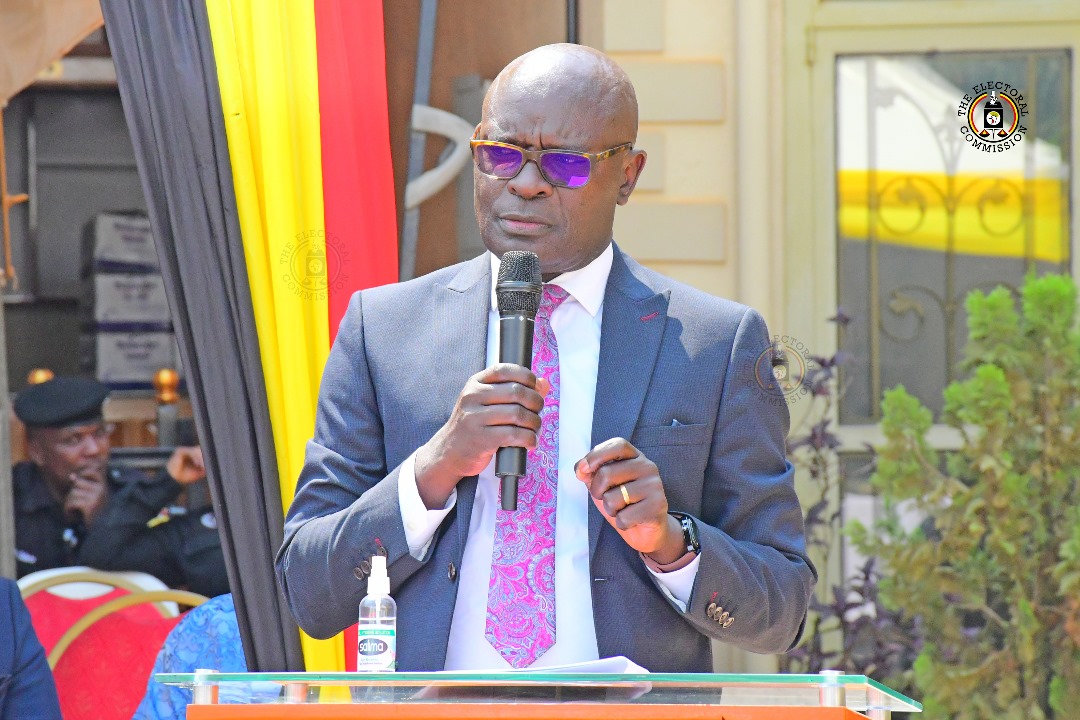Chief Justice Bart Magunda Katureebe’s defence of the High Court ruling on the handling of the controversial Shs10bn allocation for MPs to help them in the fight against Covid19 will not help ease the tension between the judiciary and the legislature nor improve the working relationship among the three arms of government.
Speaking for the first time on the matter, Katureebe dismissed Speaker Rebecca Kadaga’s claim that the court ruling on an application filed by Ntungamo MP Gerald Karuhanga and his Erute South counterpart Jonathan Odur was equivalent to an attack on the institution of Parliament.
In a ruling, which was really similar to President Museveni’s directives and Parliamentary Commission’s guidelines on how each MP should handle the Shs20m they were given, High Court ordered MPs to return the money or plan with their respective district taskforces on how to spend it. However, Kadaga criticised the courts for being used to attack the legislative arm of government and threatened to punish MPs Karuhanga and Odur through the Rules, Privileges and Discipline Committee.
But the head of the Judiciary has come out to deny that the arm of government he leads has any reason to attack the Kadaga-led legislature or be used by the executive to do so.
“There is no attack by the Judiciary to the Parliament. It is not possible, desirable and it will not happen. Who does this quarrel in the public serve?” asked Chief Justice Katureebe in a Thursday interview with NBS TV.
“Once a court has given an order, whether to the Parliament or the Executive, it must be respected. Parliament and the government must realize that we are all acting on behalf of Ugandans.”
He also told Kadaga, who is a lawyer by profession herself, that everyone had a right to run to courts of law for redress if they felt they had an issue that courts can handle, regardless of which arm, agency or department of government they work in.
“If an MP feels something has gone wrong in Parliament and he comes to court, why is it termed as an attack when the court gives a ruling for the money to stay where it is until issues are solved?” wondered Katureebe in reference to Justice Esta Nambayo’s order that had halted the expenditure of the Shs20m.
“We adjudicate matters that come before us. Anybody who feels their rights have been violated is entitled to come to court and nobody should be made to feel it is wrong to seek justice.”
What Katureebe’s response to Kadaga’s remarks of attacks by the judiciary on the legislature means is that neither arm of government is admitting responsibility for the current standoff (that is: if there is any responsibility for any of the two arms to admit or not). Those opposed to the Shs10bn allocation argue that Kadaga is looking for anyone to blame for her actions and those of the Parliamentary Commission members who pushed through the money. For this reason, they say that the current scandal will easily be forgotten if Kadaga and aggrieved MPs accept that they failed to follow the right procedures, and stop criticising those who condemn them for this mistake.
Katureebe also made comments that seemed aimed at both the executive but were also seen as a veiled attack on the importance of Parliament. He accused the Museveni-led executive arm of government for failing to grant his request for more judges yet he has kept increasing the number of MPs through formation of new administrative units.
“I feel embarrassed that you can have [almost] 500 MPs but not 80 judges of the High Court. We need to have the commercial courts strengthened. If your entire budget is going to infrastructure, make sure you have sufficient systems to solve the disputes that come up,” said CJ Katureebe.
While this was an expression of disappointment in President Museveni’s failure to recruit more judicial officers and make courts more functional especially in dealing with the case backlog, it also raises questions on what Uganda should prioritise between politics and justice, creating more constituencies and districts or courts, and electing more MPs or recruiting more judges. Whatever the choice of priority is, it will not resolve the current standoff among the three arms of government regarding the issues of independence of each, and the respect of the principle of separation of powers as provided under the Constitution, but will add more fire to it.
Do you have a story in your community or an opinion to share with us: Email us at Submit an Article







